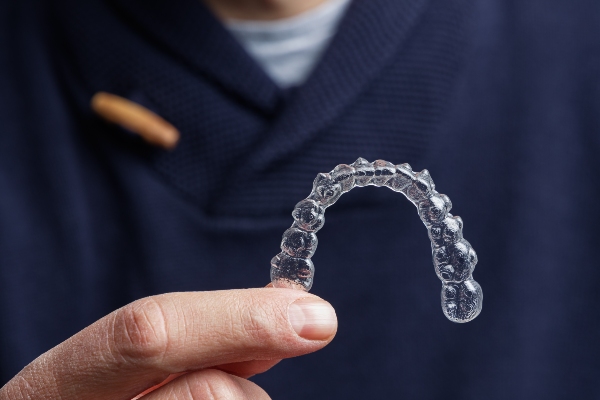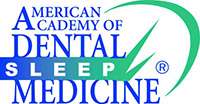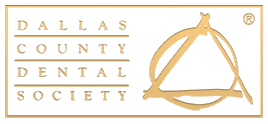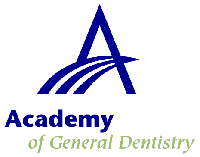CPAP Machines or Oral Appliance? Treating Sleep Apnea
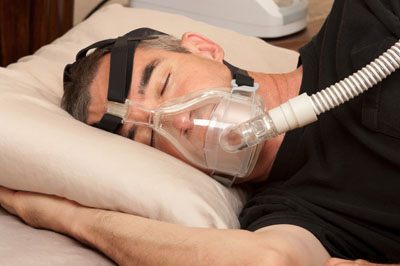
Continuous positive airway pressure therapy is the most commonly recommended treatment for sleep apnea. However, while extremely effective, the CPAP does not work for everyone. When a patient does not take well to the CPAP, a dentist who specializes in sleep therapy may recommend an oral appliance.
Dental appliances for sleep apnea
Oral appliances work best for individuals with mild to moderate cases of OSA, and a dentist may only recommend this treatment after a patient has given the CPAP a solid try. To determine the severity of a patient's case, a sleep specialist — which may or may not be a dentist — will perform a sleep study to determine if an oral appliance is a viable treatment option. If it is, the dentist will recommend one of two types of devices: the mandibular advancement device or a tongue retaining mouthpiece.
Upon first glance, one might assume that a MAD is a mouthguard or orthodontic retainer, as it looks very similar construction-wise to the latter two devices. MADs also work like a mouthguard or retainer, as a patient can fit it into the mouth by snapping the device over the upper and lower dental arches. Metal hinges connect the two pieces. Most MADs can be adjusted by a dentist to provide for maximum effectiveness.
MADs work by thrusting the tongue and lower jaw slightly forward. This position keeps the throat muscles from folding in on themselves during sleep and thereby allow a person to breathe easily at night.
If a patient's jaw cannot be repositioned forward, the dentist may recommend a tongue retaining mouthpiece. This piece is similar in nature to the MAD except that it has a small compartment that sucks the tongue forward, thereby preventing it from collapsing back into the airway.
Oral appliance vs. CPAP
The CPAP machine and oral appliances are vastly different in function and nature. Below are just a few key differences.
CPAP
The CPAP machine utilizes a tube and mask that are worn over the nose and mouth. Air pressure then forces air through the obstruction. This device is large and bulky and comes with several adapters and electrical cords. It typically also comes with a large case, making it difficult for people to travel with it. Many patients report that the mouthpiece is uncomfortable, and because the machine is noisy, it may be difficult at first to fall asleep with it.
Oral appliance
As mentioned above, dental appliances are more like mouthguards. They are small, unencumbering devices with which one can easily travel. Oral appliances do not require electricity, and they are not noisy. Most patients claim they are able to easily adjust to the oral device and fall asleep at night.
Both types of treatment options are typically covered by medical insurance. However, one should always discuss coverage with their dentist before opting for any form of treatment.
Conclusion
Whether or not one should get treated for sleep apnea should never be a question. How one should get treated, however, can be, as there are a few different treatment options. Both the CPAP machine and oral devices are effective and come with their pros and cons. Discuss your options with your dentist during your next appointment.
Request an appointment here: https://stonecanyondental.com or call Stone Canyon Dental at (972) 226-6655 for an appointment in our Sunnyvale office.
Check out what others are saying about our services on Yelp: Read our Yelp reviews.
Recent Posts
Getting a dental crown is a seamless procedure that is done in dental offices every day. There are various reasons to get a dental crown, which will play a role in how the process goes. For example, for those getting a crown to finish the tooth replacement process after an implant has been inserted, the…
If a patient suffers from misaligned teeth or a misaligned bite, Invisalign® clear aligners might be the solution they need to ensure their smiles stay bright – and straight! As one of the most trusted clear aligner systems will help straighten teeth and correct the bite without wires and brackets, meaning that patients can smile…
Your dentist may recommend a dental bridge if your case needs it. Every patient has a different set of needs. Proper assessment allows the dentist to suggest the right dental replacement. Here are the details on when a dental bridge may become your dentist’s recommendation.Dentists often encourage their patients to stop consuming tobacco. Following this…
When it comes to replacing missing teeth, dental bridges are a popular and reliable option that offers versatility by restoring one to four missing teeth in a row. Along with restoring a smile by replacing missing teeth, a dental bridge offers multiple benefits to one's oral health while addressing several issues simultaneously.Tooth loss can occur…


